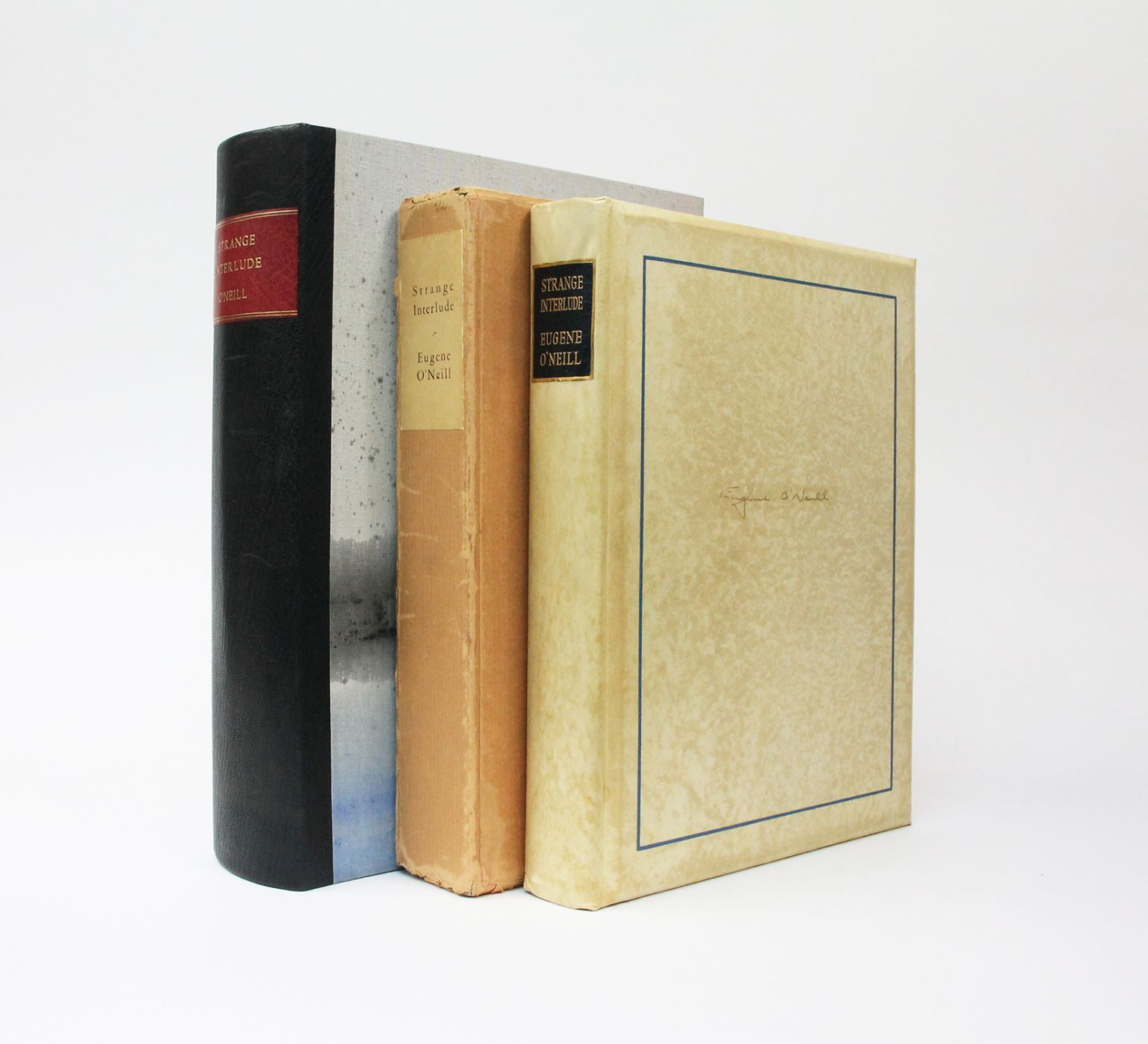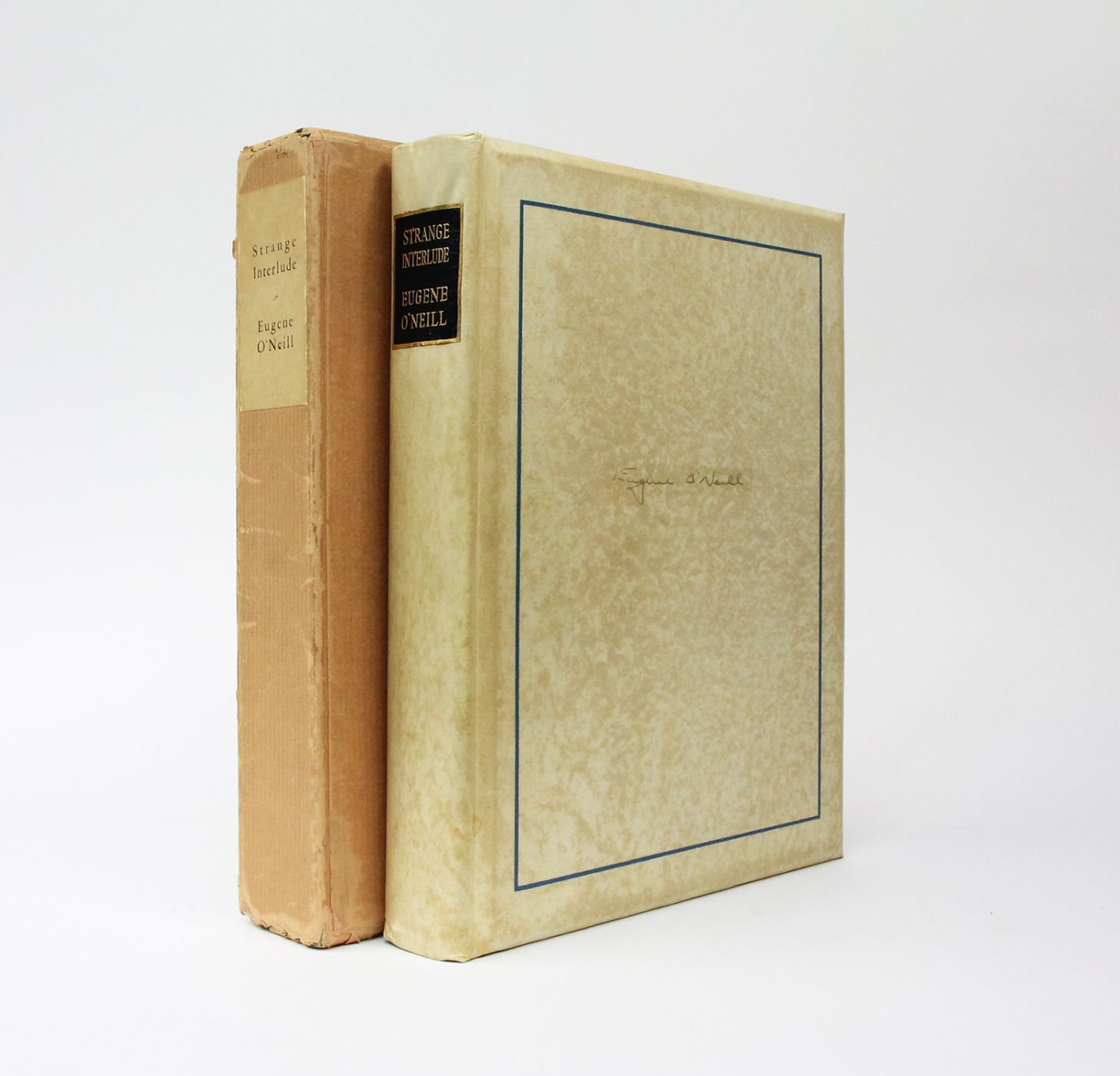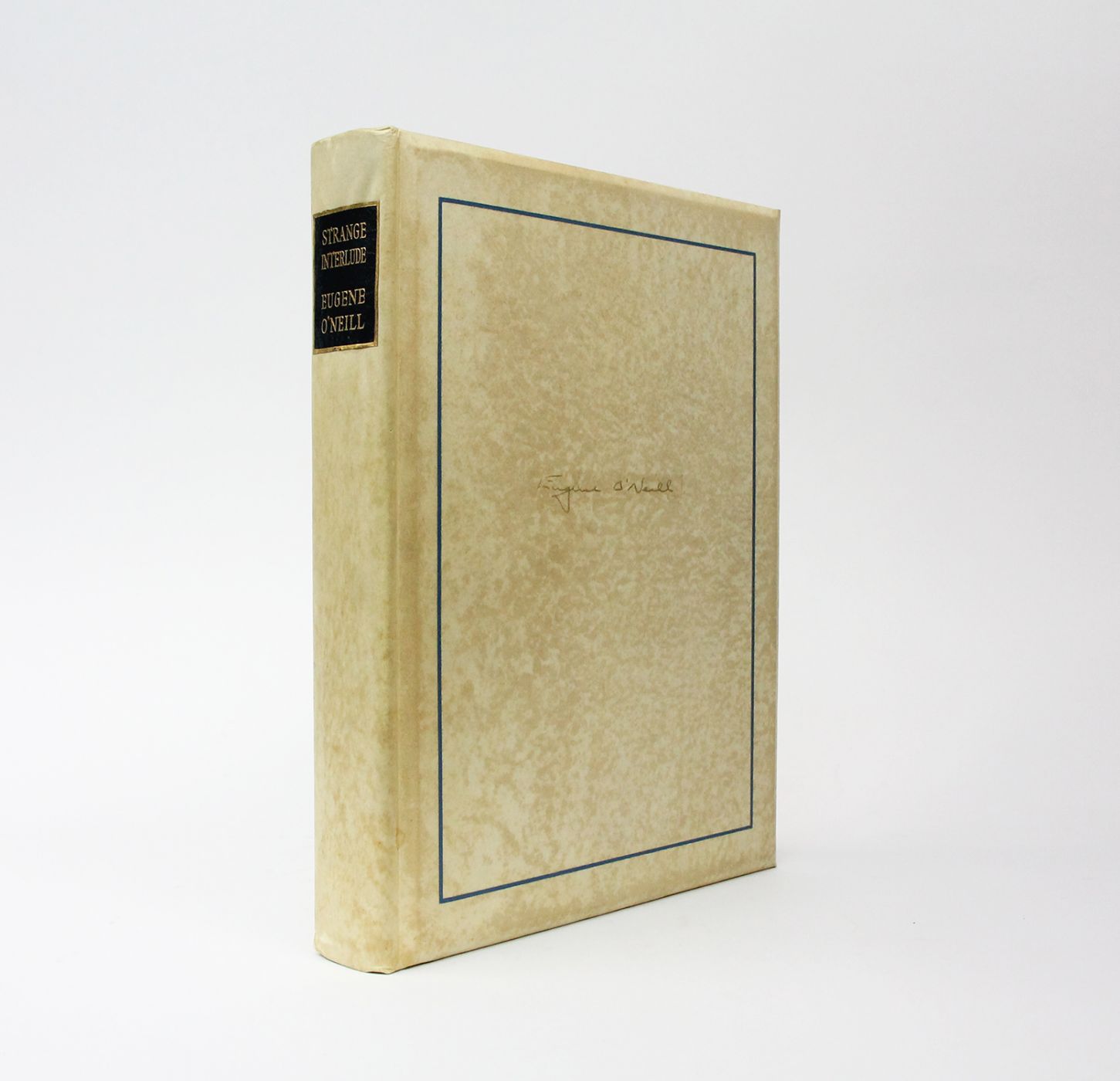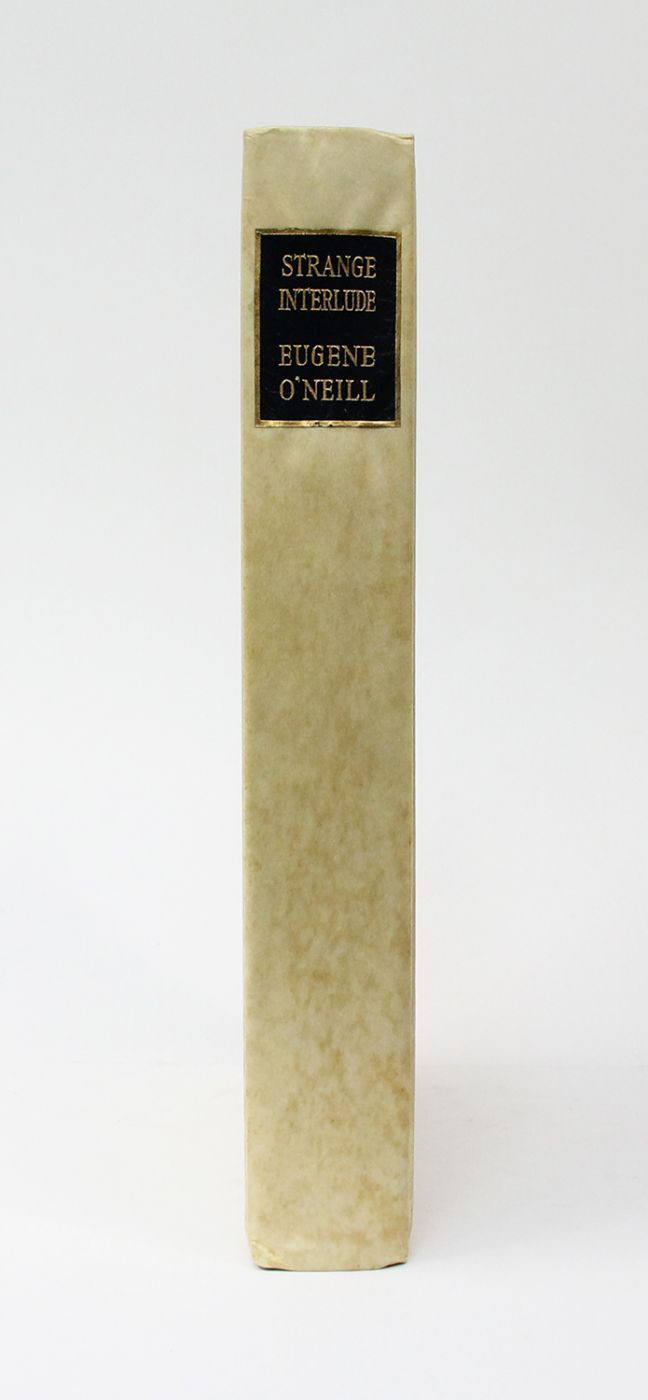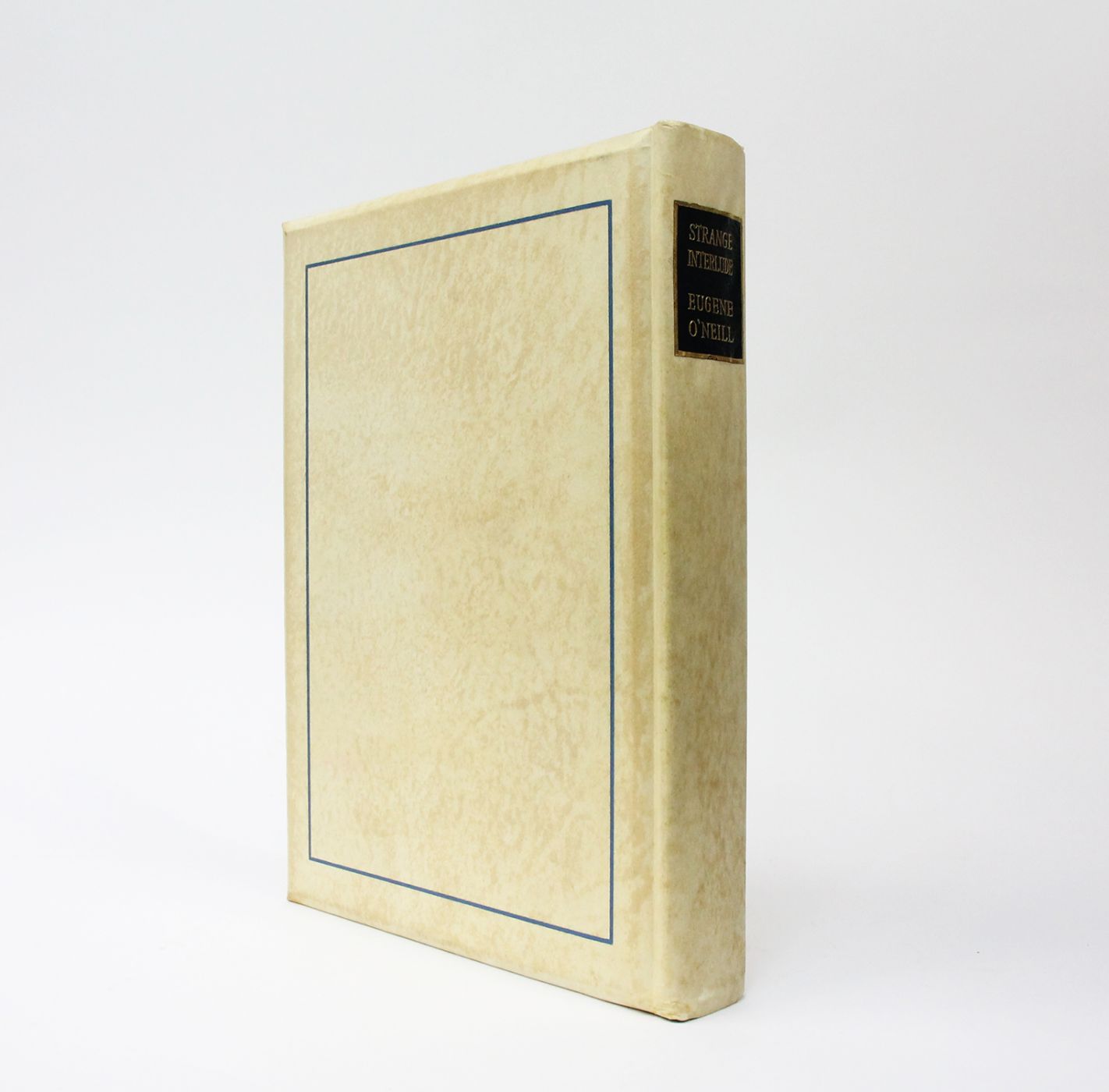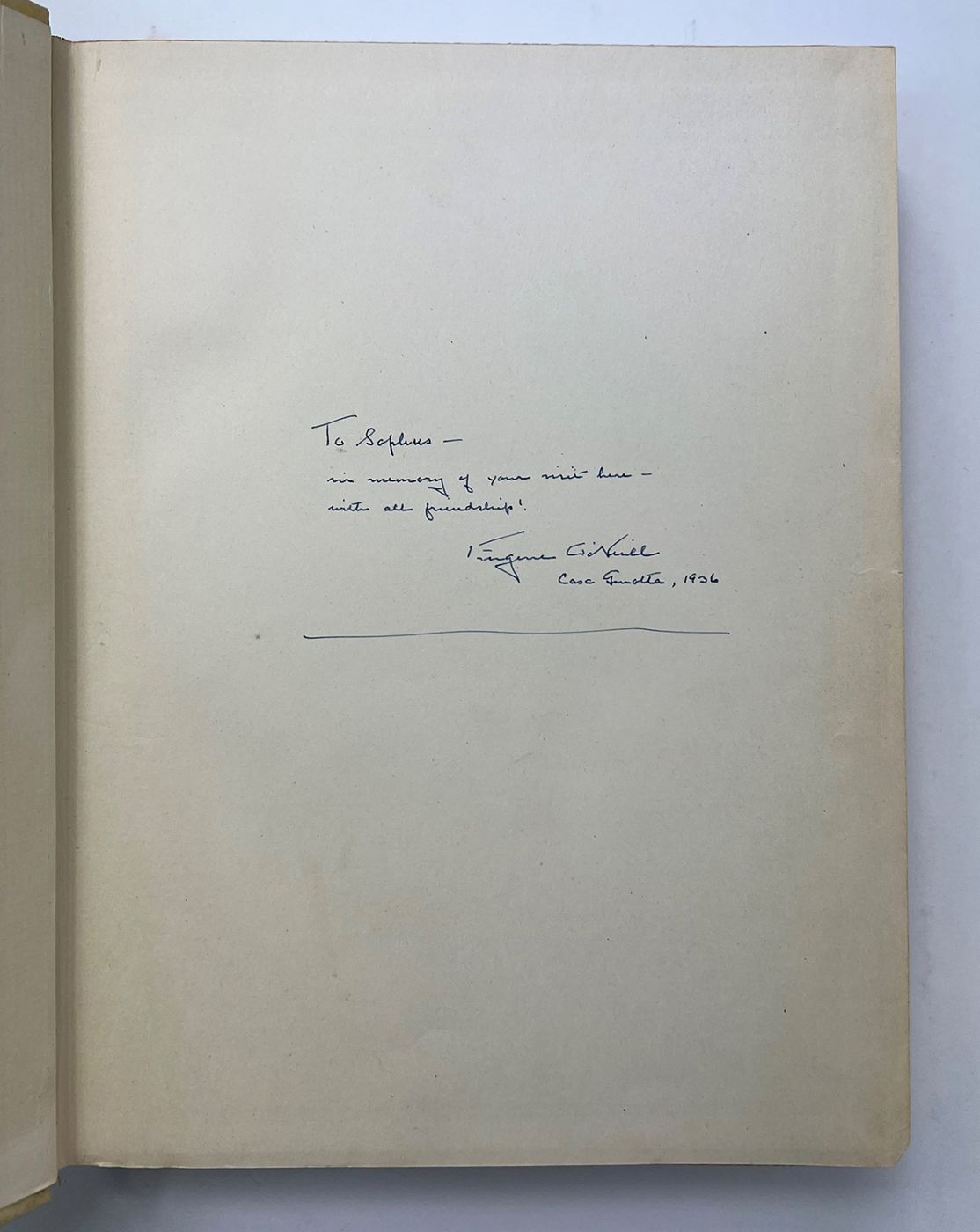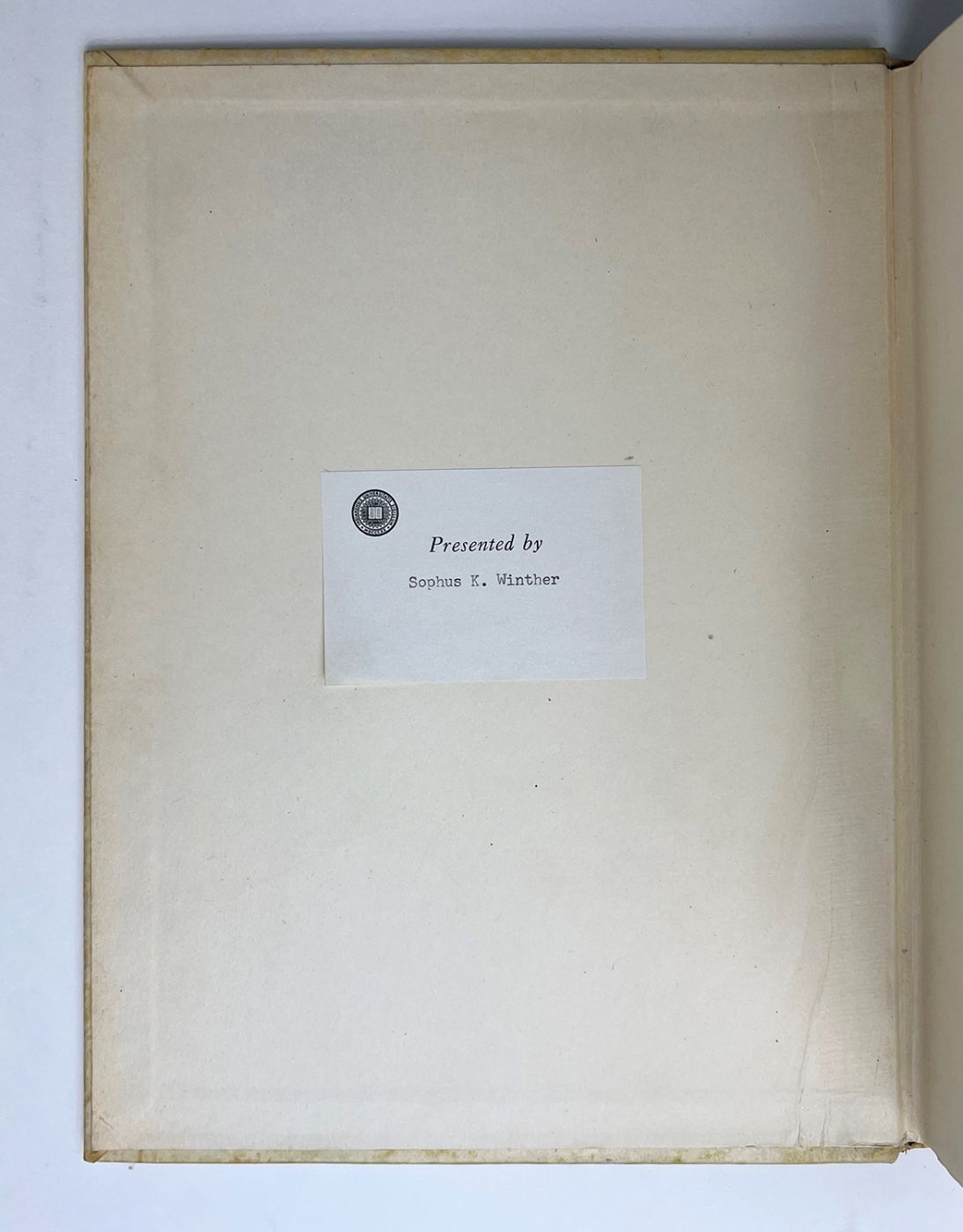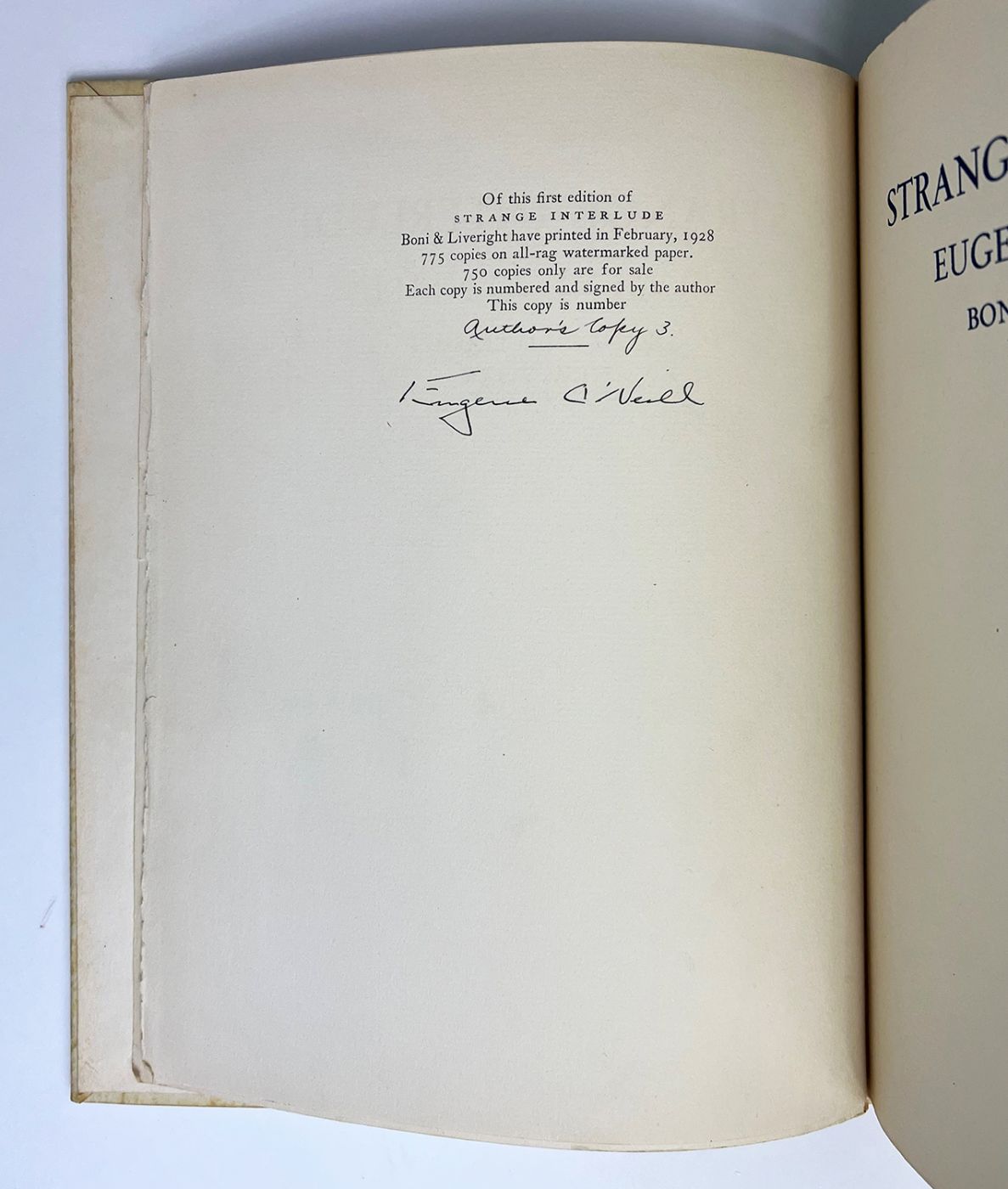STRANGE INTERLUDE
Signed, numbered, limited edition of 775 copies, 750 of which were for sale. Some of the non-trade copies were publisher's presentation copies and some were reserved for the author. This copy is identified on the limitation page as "author's copy 3". In addition to the signature on the limitation page, this copy is additionally signed and personally dedicated to the Danish-American novelist, professor and O'Neill scholar, Sophus Winther. There is a small paper label affixed to the front pastedown noting that the volume was presented by Winter to Indiana University. Original Japanese vellum-covered beveled boards with blue ruled borders, facsimile of the author's signature stamped in gilt to the front panel; black label ruled and lettered in gilt to the spine. Complete with the orange paper-covered card slipcase with a buff paper label lettered in brown to the spine. The text is printed in blue and black ink on laid paper, watermarked with the author's signature. Housed in a fleece-lined custom made box with hand-decorated cloth-covered boards, quarter-bound in black leather with a burgundy label lettered and ruled in gilt to the spine. A very near fine copy, the binding square and firm, the contents clean and bright throughout. The paper-covered boards are uniformly mottled (a near-universal phenomenon with this volume) and the slipcase is moderately worn and scuffed, notably to lower edges. A very attractive association copy of O'Neill's Pulitzer Prize-winning play.
Dedicated on the front free endpaper "To Sophus — / in memory of your visit here – / with all friendship! / Eugene O'Neill / Casa Genotta, 1936". Stephen A. Black, in his biography of O'Neill, describes that visit thus: "In late August, new friends from Seattle arrived for a visit, Sophus and Eline Winther. Sophus Keith Winther of the University of Washington had written a book on O'Neill that the playwright liked. In correspondence O'Neill had mentioned he wanted to move to the West Coast. The Winthers suggested a visit to Seattle, and Eugene agreed. Winther arranged for them [O' Neill and his wife, Carlotta] to rent a secluded house high on a bluff in the Magnolia district with westward views of Puget Sound and the Olympic Peninsula." The friendship between O' Neill and Winther continued for the remainder of the author's life. 'Strange Interlude', an experimental, nine-act work lasting five hours, took many years to write (O' Neill began work on the play in 1923) and is notable for its novel and extended use of soliloquy (a characteristic that was parodied by Groucho Marx, no less, in the great 'Animal Crackers' (1930), where O' Neill's play is subtly name-checked). The play opened on January 30, 1928, at the John Golden Theatre on Broadway and won the Pulitzer Prize for Drama that year (the third of four such awards bestowed upon the author). 'Strange Interlude' was adapted by Bess Meredyth for the 1932 film directed by Robert Z. Leonard, starring Norma Shearer and Clark Gable; as well as a 1988 television adaptation directed by Herbert Wise and starring Edward Petherbridge and Glenda Jackson (broadcast as part of the PBS series, American Playhouse). (Stephen A. Black, 'Eugene O'Neill: Beyond Mourning and Tragedy', 1999; Atkinson A 30-II-1).
Stock code: 20663
£1,950
Published:
Category
Modern First EditionsSigned / Inscribed
Literature


